The electric vehicle bubble appears to be in danger of exploding.
Editor’s note: This article is from WeChat public account “ iFeng Technology ” (ID : Ifeng_tech), author Xiao Yu.
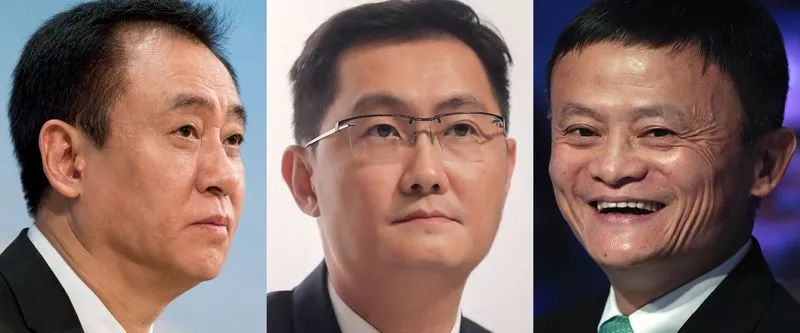
Chinese Regal Layouts Electric Vehicles
Some of China’s richest corporate tycoons have invested billions of dollars in electric vehicle companies, hoping to promote China to become a leader in the global electric vehicle market. But now, as car sales slow down and the government cuts subsidies, a liquidation seems to be coming.
The flagship companies of Chinese billionaires Ma Yun, Ma Huateng, Li Yanhong, and Xu Jiayin have bet that electric vehicles will become “smart machines with wheels” that can connect passengers to other company businesses. But now, it is increasingly difficult for them to make a profit from this bet. Their capital injection and dozens of startups raising a total of $ 18 billion have fueled the electric car bubble. The bubble now appears to be in danger.
The sales volume of the Chinese electric vehicle market is experiencing a continuous decline, forcing electric vehicle manufacturers to lower their profit outlook. DBS Hong Kong-based analyst Rachel Miu said that as China further cuts its subsidies for electric vehicle purchases and allows automakers to compete on their own, the electric vehicle market is about to see a decline, even with the support of corporate tycoons. It may not be possible to prevent it. “For companies that are new to the electric car industry, what they are going to climb is a very steep hill,” she said.
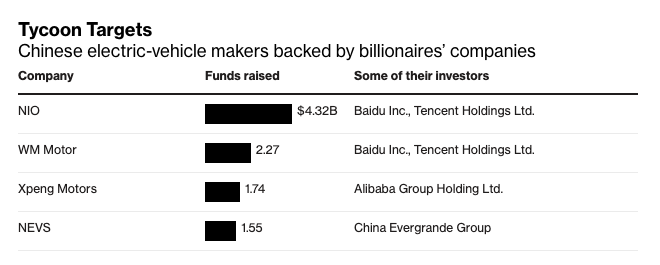
Finance and investors of Weilai, Xiaopeng Motors and other companies
The following is the layout of the Chinese technology giants in the electric vehicle industry andFacing trouble:
Alibaba: Alleged secret theft of Xiaopeng Automobile invested
After accumulating more than 40 billion US dollars of wealth, Jack Ma resigned as chairman of the Alibaba Board of Directors in September this year, but he still retains the board seat and influence. Ali participated in multiple rounds of financing for Guangzhou Xiaopeng Automobile, including a round of 2.2 billion yuan (about 313 million US dollars) in financing last year. Xiaopeng He co-founder He Xiaopeng is a former Ali executive.
Xiaopeng Automobile launched its first electric vehicle last year: the 5-seater SUV G3, and has sold 11,940 units so far this year. The company, which was founded in 2014, has also partnered with some of the more established automakers, and a factory it has built with Haima Motor can produce 150,000 electric vehicles a year. Another plant should start assembling the P7 sedan soon, with deliveries starting next year.
However, the development of Xiaopeng Automobile is not short of controversy, and some new engineers have been accused of stealing the trade secrets of their former employers in the United States. In March this year, Tesla sued a former company engineer, accusing him of uploading copies of Tesla files, directories and source code to his personal cloud storage account before leaving to join Xiaopeng Automobile. Similarly, Apple accused a former company engineer of stealing self-driving car secrets before joining Xiaopeng Automobile last year, and the lawsuit is about to begin.
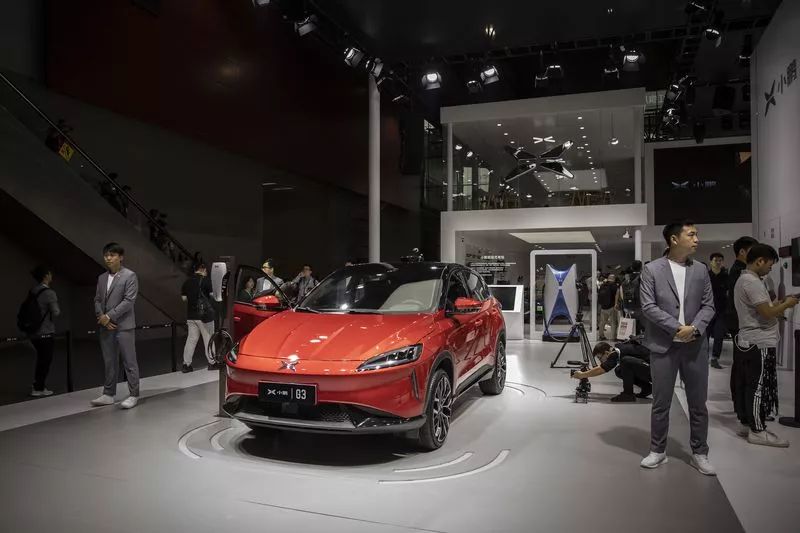
Xiaopeng Automobile G3 SUV
Xiaopeng Automobile has denied wrongdoing. “We are firmly committed to independent research and development,” said Gu Hongdi, president of Xiaopeng Automobile. “Intellectual property is very important to us.”
As Xiaopeng Automobile’s second largest shareholder, Ali has not yet commented. Xiaopeng Automobile stated on November 13 that Xiaomi Group participated in another round of US $ 400 million financing of the company.
Tencent: Invested Weilai Automobile went public, then laid off staff
Ma Huateng is the second richest man in China. Its subsidiary Tencent led a $ 1 billion financing of Weilai Auto in 2017. With sales of more than 26,000 units, Weilai Automobile is one of the few Chinese electric car startups that produces multiple models, and went public ahead of rivals last year.
However, with the decline in overall car sales of Weilai Automobile and the company’s investment in marketing and real estate, Weilai Automobile’s losses are increasing. Weilai Auto sponsored famous AmericanThe concert of singer Bruno Mars opened a luxury club for car owners with exhibition halls, cafes and performance spaces. As of August this year, Weilai Automobile has opened 19 Weilai centers, and the total rental cost is equivalent to 6.3% of the 12-month revenue in March.
“Weilai Automobile has chosen a direct sales model, focusing on user experience.” Weilai Automobile said that the company currently has no plans to close the existing Weilai Center or open a new Weilai Center.
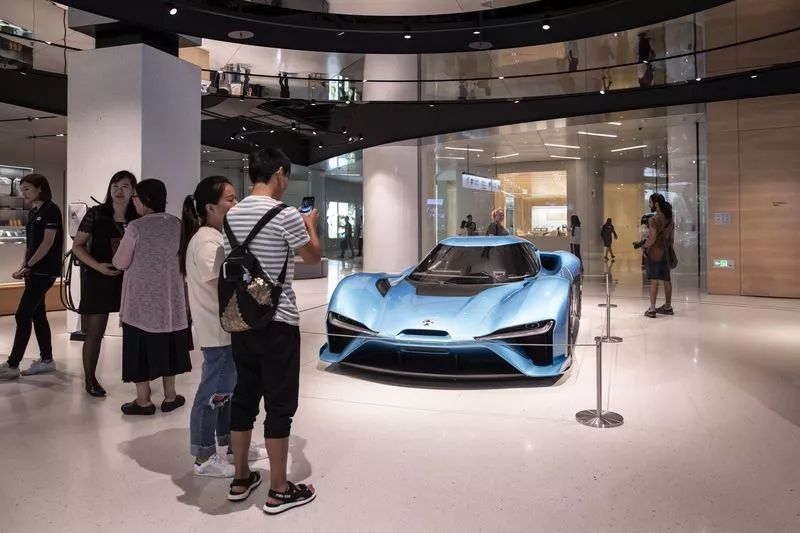
Wei Lai EP9
In the twelve months to June, Weilai Motors had revenue of US $ 1.2 billion, but suffered a loss of US $ 2.8 billion, and its stock price has plummeted this year. When Tencent injected another $ 100 million into Weilai Auto in September this year, the company had already laid off about 20% of its staff.
“Since the subsidy reduction, our sales have been under pressure,” said Li Bin, CEO of Weilai Automobile. “Now auto sales have entered a new era, and only high-quality products and services can win customers.” p>
Tencent has expressed support for the development of electric vehicles, but has not yet commented on Weilai Automobile.
Baidu: Weimar Automobile sued for investment
As Baidu’s CEO, Li Yanhong has included Weimar in Baidu’s plans to develop self-driving cars. Baidu has led Weimar’s 3 billion yuan financing this year and holds 13% of Weimar’s shares.
Rupert Mitchell, chief strategy officer at Weimar, said the company launched an electric SUV last year and has delivered more than 19,000. So far this year, Weimar Motors has sold 14,273 battery-powered SUVs, trailing BYD and Weilai Motors invested by Buffett, but ahead of Xiaopeng Motors. Weimar launched its second SUV on November 22.
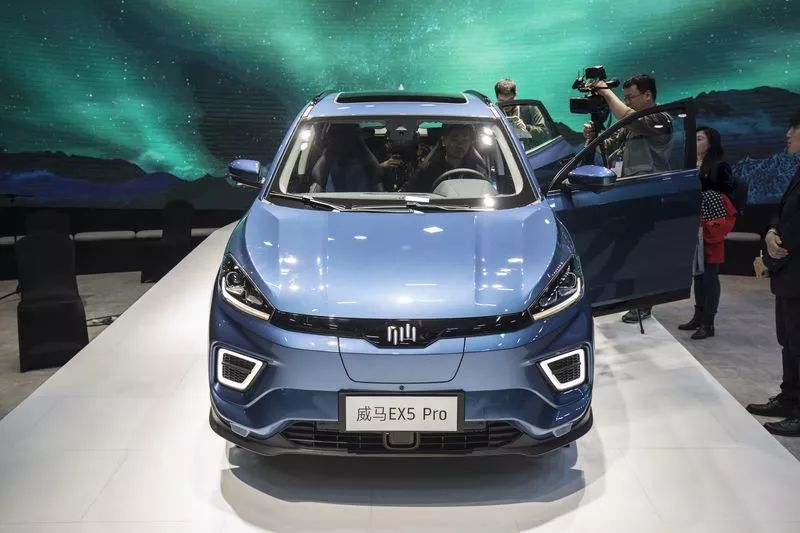
Weima EX5
Mitchell claims that Weimar has an advantage over companies founded by Internet company employees. Weihui Motors founder Shen Hui was responsible for running Volvo’s China operations.
“We are not halfway from the tech industry to try to be a mass market car,” Mitchell said.
Volvo’s parent company, Geely, has sued Weimar Automobile for compensation of 2.1 billion yuan for intellectual property infringement. Weimar has denied wrongdoing.
Mitchell said that Weimar Automobile is producing cars at its wholly-owned factory, which will help the company control the quality of cars. Weimar Automobile will open a second plant next year, producing 150,000 cars per year, and hopes to raise another $ 1 billion. Baidu declined to comment.
Hengda Group: unexpected entry, high expectations for electric vehicles
In the electric vehicle industry, a more surprising entry is the real estate developer Evergrande Group, which has stated that it will become the world’s largest new energy vehicle manufacturer within three to five years. This means it will overtake Tesla, which has just opened a factory in Shanghai. From August 2018 to June 2019, Evergrande invested more than US $ 3.8 billion in electric vehicle-related companies and will begin producing Hengchi brand cars next year.
Hengda wants to build 10 production bases, and plans to invest 45 billion yuan in new energy vehicles from 2019 to 2021. On November 10 this year, Evergrande Health announced that it would invest nearly 3 billion US dollars to increase its shareholding in NEVS (Guoneng Electric Vehicle Sweden Co., Ltd.) from 68% to 82%.
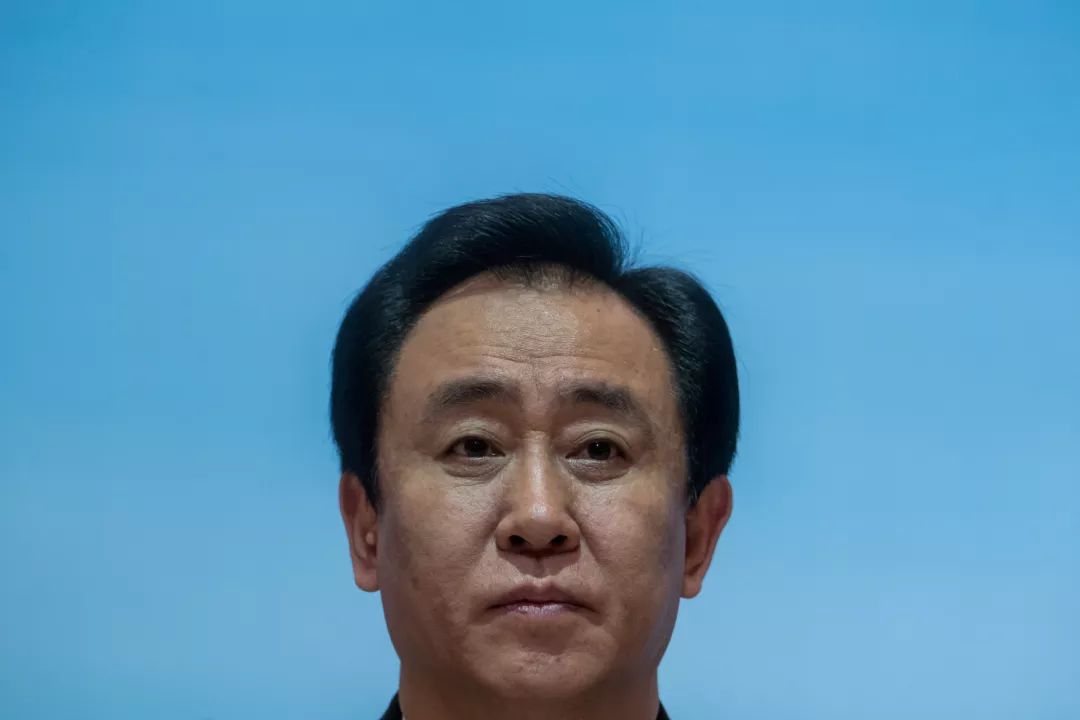
Xu Jiayin
Hengda founder and billionaire Xu Jiayin acknowledges that there is not much overlap between Evergrande’s real estate business and electric vehicle ambitions. “We don’t have any talent, technology, experience, or production base for car manufacturing,” Xu Jiayin said. “So how do we compete with established car manufacturers in the world?”
His answer is buy buy buy. “As long as we can buy the core technology and company, we will buy it,” he said.
Given the burning nature of new energy vehicles, Xu Jiayin’s strategy at all costs may have an impact on Evergrande’s finances. Evergrande’s 45 billion yuan budget may underestimate their investment in electric vehicles, which may exacerbate Evergrande’s cash crisis.
“Given that Evergrande urgently needs to maintain price reductions in order to increase cash income from home sales, thisThis may affect the profitability of Evergrande’s home sales. “Analyst Kristy Hung said in a November 22 report.

Ma Huateng is the second richest man in China. Its subsidiary Tencent led a $ 1 billion financing of Weilai Auto in 2017. With sales of more than 26,000 units, Weilai Automobile is one of the few Chinese electric car startups that produces multiple models, and went public ahead of rivals last year.
However, with the decline in overall car sales of Weilai Automobile and the company’s investment in marketing and real estate, Weilai Automobile’s losses are increasing. Weilai Auto sponsored famous AmericanThe concert of singer Bruno Mars opened a luxury club for car owners with exhibition halls, cafes and performance spaces. As of August this year, Weilai Automobile has opened 19 Weilai centers, and the total rental cost is equivalent to 6.3% of the 12-month revenue in March.
“Weilai Automobile has chosen a direct sales model, focusing on user experience.” Weilai Automobile said that the company currently has no plans to close the existing Weilai Center or open a new Weilai Center.

Wei Lai EP9
In the twelve months to June, Weilai Motors had revenue of US $ 1.2 billion, but suffered a loss of US $ 2.8 billion, and its stock price has plummeted this year. When Tencent injected another $ 100 million into Weilai Auto in September this year, the company had already laid off about 20% of its staff.
“Since the subsidy reduction, our sales have been under pressure,” said Li Bin, CEO of Weilai Automobile. “Now auto sales have entered a new era, and only high-quality products and services can win customers.” p>
Tencent has expressed support for the development of electric vehicles, but has not yet commented on Weilai Automobile.
Baidu: Weimar Automobile sued for investment
As Baidu’s CEO, Li Yanhong has included Weimar in Baidu’s plans to develop self-driving cars. Baidu has led Weimar’s 3 billion yuan financing this year and holds 13% of Weimar’s shares.
Rupert Mitchell, chief strategy officer at Weimar, said the company launched an electric SUV last year and has delivered more than 19,000. So far this year, Weimar Motors has sold 14,273 battery-powered SUVs, trailing BYD and Weilai Motors invested by Buffett, but ahead of Xiaopeng Motors. Weimar launched its second SUV on November 22.

Weima EX5
Mitchell claims that Weimar has an advantage over companies founded by Internet company employees. Weihui Motors founder Shen Hui was responsible for running Volvo’s China operations.
“We are not halfway from the tech industry to try to be a mass market car,” Mitchell said.
Volvo’s parent company, Geely, has sued Weimar Automobile for compensation of 2.1 billion yuan for intellectual property infringement. Weimar has denied wrongdoing.
Mitchell said that Weimar Automobile is producing cars at its wholly-owned factory, which will help the company control the quality of cars. Weimar Automobile will open a second plant next year, producing 150,000 cars per year, and hopes to raise another $ 1 billion. Baidu declined to comment.
Hengda Group: unexpected entry, high expectations for electric vehicles
In the electric vehicle industry, a more surprising entry is the real estate developer Evergrande Group, which has stated that it will become the world’s largest new energy vehicle manufacturer within three to five years. This means it will overtake Tesla, which has just opened a factory in Shanghai. From August 2018 to June 2019, Evergrande invested more than US $ 3.8 billion in electric vehicle-related companies and will begin producing Hengchi brand cars next year.
Hengda wants to build 10 production bases, and plans to invest 45 billion yuan in new energy vehicles from 2019 to 2021. On November 10 this year, Evergrande Health announced that it would invest nearly 3 billion US dollars to increase its shareholding in NEVS (Guoneng Electric Vehicle Sweden Co., Ltd.) from 68% to 82%.

Xu Jiayin
Hengda founder and billionaire Xu Jiayin acknowledges that there is not much overlap between Evergrande’s real estate business and electric vehicle ambitions. “We don’t have any talent, technology, experience, or production base for car manufacturing,” Xu Jiayin said. “So how do we compete with established car manufacturers in the world?”
His answer is buy buy buy. “As long as we can buy the core technology and company, we will buy it,” he said.
Given the burning nature of new energy vehicles, Xu Jiayin’s strategy at all costs may have an impact on Evergrande’s finances. Evergrande’s 45 billion yuan budget may underestimate their investment in electric vehicles, which may exacerbate Evergrande’s cash crisis.
“Given that Evergrande urgently needs to maintain price reductions in order to increase cash income from home sales, thisThis may affect the profitability of Evergrande’s home sales. “Analyst Kristy Hung said in a November 22 report.
